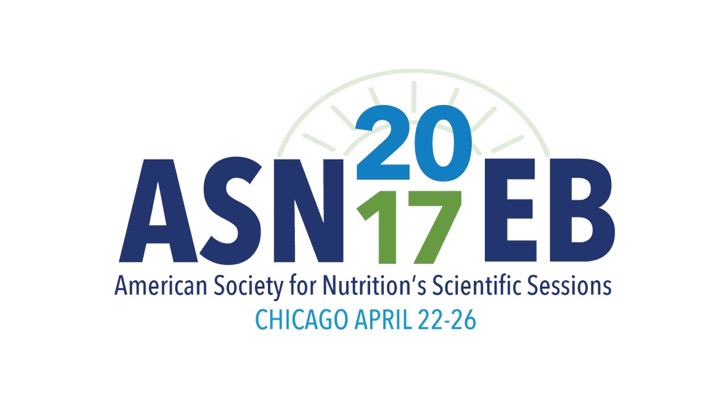Advancing Nutrition Implementation: Key Take Home Messages from SISN at EB 2017
Last month, SISN was in attendance at Experimental Biology (EB), Chicago, USA. This annual multi-disciplinary scientific meeting attracts delegates from all areas of life sciences and from the wider global community. As a new society, we were excited to be present and capitalize on the opportunity to raise awareness of the Society and our mission and to discuss implementation science (IS) widely with other delegates. In the short video below, SISN member, Purnima Menon, Senior Research Fellow in IFPRI’s Poverty, Health and Nutrition Division, highlights why it is important for SISN to be present at meetings such as EB.
We were encouraged to see that in addition to our own Symposium, implementation and IS were also a hot topic for discussion during other presentations and among meeting delegates.
Here are our top takeaways from the 5-day meeting:
- Implementation Spectrum: IS as an integral part of the continuum of effort to improve population health
In shaping the future of the public health nutrition agenda, effort is needed across the entire spectrum of activities from basic biomedical studies and efficacy trials, right through to implementation at scale and program evaluation. Historically, the focus of scientific meetings such as EB has been on basic and applied science and on formative research but in recent years this community of researchers have been increasingly interested in learning more about how they might better translate their work into real-world settings and how they can rigorously conduct and evaluate these implementation efforts. Thus, there is growing recognition of the important contribution of IS if we are to achieve the necessary impact on nutrition outcomes.
- Broader Engagement: We need to break out of our respective silos
As a Society our mission is “to convene, advocate, disseminate and promote dialogue among scientists, policy leaders, government officials, funders and practitioners to advance the science and practice of nutrition implementation world-wide.” Historically, meetings such as EB have fostered researcher to researcher dialogue, but the landscape is now shifting. SISN were delighted to engage not only with researchers but with non-academics working at the forefront of policy development and implementation, as well as with colleagues from other disciplines. This broader engagement and acceptance of a wider portfolio of knowledge is the key to progress in IS and will help us further refine our conceptual thinking to ensure that we accurately represent our intentions to all stakeholder groups. However, while these conversations are a great first step, we acknowledge that much work remains to truly foster communication, align thinking, and develop partnerships across different sectors of government, non-profit, and academic organizations.
- Knowledge Utilization: We don’t need to re-invent the wheel
Achieving impact at scale involves much more than the generation of new knowledge about implementation. We must build on existing knowledge and experience. Numerous excellent examples of the diversity of implementation research and its positive impact were presented during EB. These included, but were not limited to:
- Understanding stakeholder networks for nutrition policy: Lessons from a network analysis study in India. Presented by Shruthi Cyriac, International Food Policy Research Institute (IFPRI)
- National Information Platforms for Nutrition (NIPN): a European Commission led initiative aiming to improve the analysis of data. Presented by Dr Yves Martin-Prevel, Institut de Recherche pour le Développement (IRD)
- Implementation of the Lebanon national salt iodization policy. Presented by Dr. Chaza Akik, American University of Beirut (AUB)
- Learnings from implementation of a conditional cash transfer program in Mexico. Presented by Dr. Lynnette Neufeld, Global Alliance for Improved Nutrition (GAIN)
- Lives Saved Tool software used to model the impact of nutrition intervention scale-up on mothers and children. Presented by Dr. Rebecca Heidkamp, John Hopkins University
Improving the utilization of this existing knowledge by making it more available and usable is a high priority for SISN. To this end, we are currently conducting a narrative review to create a repository of case studies to illustrate how various groups and individuals have and are conducting implementation research. We have already identified over 100 examples and would love to add your work to the collection, please send details to: implementnutrition@gmail.com.
We will be discussing the details and outcomes of our own Symposium at EB, entitled “Implementation Research in Nutrition: Purposes, Methods and Applications”, in our next blog.
Have an idea or a comment on any of the issues discussed above? We welcome your feedback – you can comment on this post on our LinkedIn feed or write to us using the email address below.
If you are interested in finding out more about implementation science (IS) or becoming a member of SISN to help us advance the use of IS in nutrition, you can contact us via our website (www.implementnutrition.org) or can email us at implementnutrition@gmail.com.

